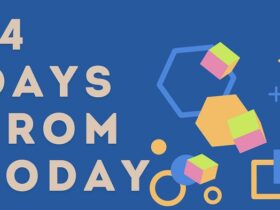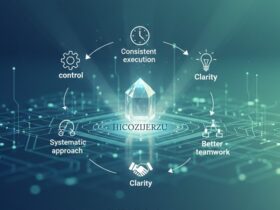When Monday morning rolls around and your team looks like they’d rather be anywhere else, you’re witnessing a costly problem.
Only one in three U.S. workers reported that they’d received praise for work in the past week.
That means two-thirds of employees are trudging through their workdays feeling unnoticed and undervalued. The solution isn’t complicated, but it requires intentional action: celebrating milestones consistently and meaningfully.
Milestone Celebrations and Team Morale
Understanding why milestone celebrations work isn’t just helpful—it’s essential for creating lasting change in your workplace culture. The psychological mechanisms behind recognition tap into fundamental human needs that drive performance and satisfaction.
The Neurological Response to Recognition
When someone receives genuine acknowledgment for their achievements, their brain releases dopamine, the same neurotransmitter associated with pleasure and reward. This chemical response doesn’t just feel good; it creates a powerful association between effort and positive outcomes.
Team morale gets an immediate boost because recognition triggers what psychologists call the “recognition-reward cycle.” Employees who experience this positive reinforcement naturally seek to repeat the behaviors that earned them praise. Kudoboard’s employee recognition software helps automate this process, ensuring no milestone goes unnoticed. It fosters a culture where appreciation becomes part of the daily workflow. Over time, this leads to stronger engagement, collaboration, and employee retention.
The Ripple Effect of Acknowledgment
Recognition doesn’t happen in isolation. When one team member gets celebrated, others notice. This creates a culture where achievements are valued and workplace motivation spreads organically throughout the organization. Studies show that witnessing peer recognition can be almost as motivating as receiving it directly.
The science is clear: regular milestone celebrations create measurable changes in brain chemistry that directly impact performance, creativity, and job satisfaction.
Essential Types of Milestones That Deserve Recognition
Not all achievements carry the same weight, but identifying which milestones matter most can transform your team’s energy and engagement. Strategic milestone selection ensures your recognition efforts deliver maximum impact on team morale.
Professional Achievement Milestones
Career progression moments deserve special attention. Whether it’s completing a certification, mastering a new skill, or taking on additional responsibilities, these milestones represent growth that benefits both the individual and the organization.
Project completions, especially challenging ones, create natural celebration opportunities. When teams push through obstacles to meet deadlines or exceed quality standards, acknowledging their effort reinforces the behaviors that drive success.
Personal Development Milestones
Work-life balance achievements matter more than many leaders realize. When someone successfully manages a demanding project while maintaining family commitments, that’s worth celebrating. These acknowledgments show you value employees as whole people, not just productivity machines.
Educational accomplishments—even those unrelated to work—demonstrate a growth mindset that benefits your entire team. Employee recognition for personal learning sends a powerful message about your company’s values.
Team Collaboration Milestones
Cross-departmental successes deserve extra attention because they’re often harder to achieve. When different teams work together seamlessly, celebrating that collaboration encourages future partnerships.
Mentorship moments create a lasting impact. When experienced team members help newer colleagues succeed, recognizing both the mentor and mentee boosts team spirit while reinforcing knowledge-sharing behaviors.
Innovative Celebration Strategies That Work
Generic “good job” emails don’t move the needle anymore. Modern teams need celebration approaches that feel personal, timely, and meaningful. The key is matching your recognition style to what motivates your specific team members.
Personalized Recognition Approaches
Some employees thrive on public recognition, while others prefer private acknowledgment. Understanding these preferences isn’t complicated—you just need to ask. Create a simple preference survey to learn how each team member likes to be recognized.
Generational differences play a role, too. Younger employees often appreciate social recognition through digital platforms, while more experienced workers might value written notes or face-to-face acknowledgment.
Experience-Based Celebrations
Instead of defaulting to gift cards or plaques, consider experiences that create lasting memories. Team lunches, professional development opportunities, or even flexible work arrangements can be more meaningful than traditional rewards.
Adventure-based rewards work particularly well for milestone celebrations. Whether it’s an escape room challenge or a group cooking class, shared experiences strengthen team bonds while acknowledging achievements.
Technology-Enhanced Recognition
Digital platforms make it easier to celebrate milestones consistently. Automated reminders ensure no anniversary or achievement falls through the cracks. Real-time recognition feeds keep accomplishments visible and create ongoing positive reinforcement.
Social recognition features allow team members to celebrate each other, creating peer-to-peer acknowledgment that doesn’t require manager involvement.
Building Sustainable Recognition Programs
The most effective milestone celebrations happen regularly, not just during annual reviews or company parties. Building systems that support consistent recognition ensures that celebrating milestones becomes part of your company culture rather than an occasional event.
Creating Budget-Friendly Celebration Systems
Recognition doesn’t require big budgets. Handwritten thank-you notes, public shout-outs in meetings, or flexible work arrangements can be more impactful than expensive rewards. The key is consistency and sincerity.
Time-based rewards—like leaving early on Friday or taking a longer lunch—cost nothing but mean everything to employees juggling multiple priorities.
Measuring Recognition Impact
Track simple metrics to understand how your milestone celebrations affect team morale. Employee engagement scores, retention rates, and even informal feedback can help you refine your approach.
Don’t overthink the measurement process. Simple pulse surveys asking “Do you feel recognized for your contributions?” provide valuable insights without complicated analytics.
Scaling Recognition Efforts
As your team grows, systematic approaches become essential. Peer nomination programs allow recognition to happen organically while ensuring no one falls through the cracks.
Manager training on recognition techniques helps supervisors identify celebration opportunities and deliver acknowledgment effectively.
Making Milestone Celebrations Part of Your Culture
Marking milestones is not a perk and it is not a nice-to-have in teams, but a strategic requirement in the creation of high personal and team resilience. The science demonstrates that frequent recognition results in quantifiably better performance, innovation, and retention.
Don’t do too much, but start. Pick one of the milestones that occurred in your team the past few days and recognize it nonstop. Form the habit then. Your employee recognition does not have to be top-notch; it should, however, be regular and sincere.
The most successful teams do not always have to be considered the most talented – team members are always eager to contribute their best and feel appreciated. You are not only raising the bar to celebrate the milestones when you do so, but you are also enhancing team spirit, but also laying out your success basics.
FAQs
How does celebrating workplace milestones improve employee engagement?
Milestone celebration enhances morale, make people feel part of something, and challenges people to give their best. Positive morale results in good teamwork, creativity, and good working environments.
Why should we celebrate milestones?
The practice of celebrating milestones is a recognition of efforts and hard work, which raises confidence and self-esteem. Rewards Dopamine is a transmitter compound connected with pleasure and rewards.
How does recognition boost morale?
Recognition in the workplace is motivational, an achievement, and appreciated by employees. Recognition also boosts engagement, productivity, and company loyalty, hence, an elevated retention.
Image Source: Envato









Got a Questions?
Find us on Socials or Contact us and we’ll get back to you as soon as possible.